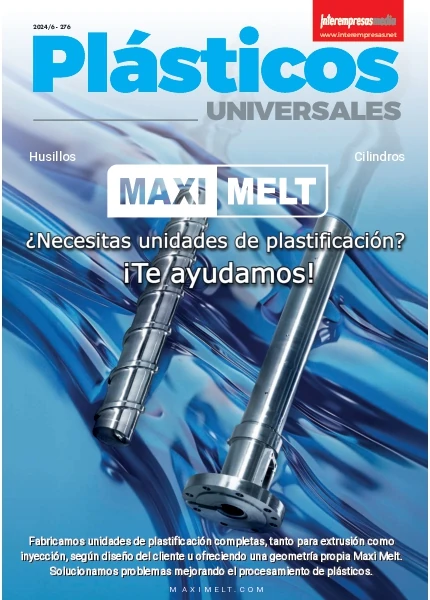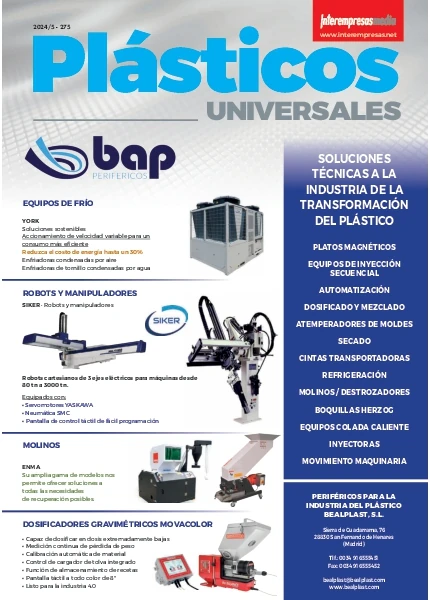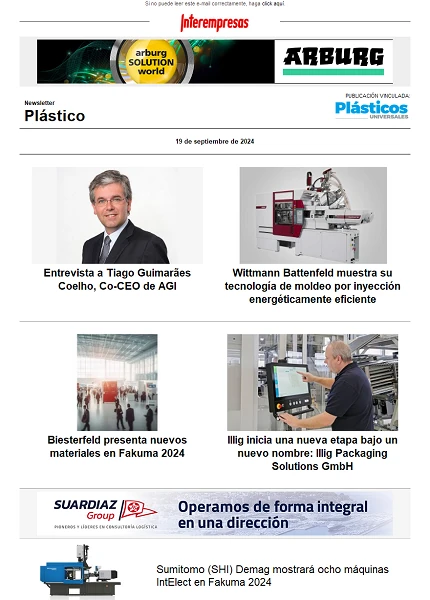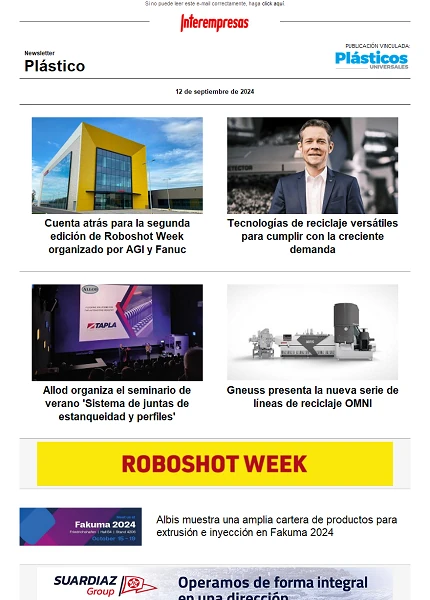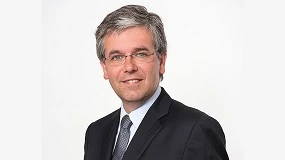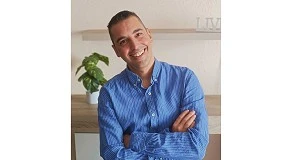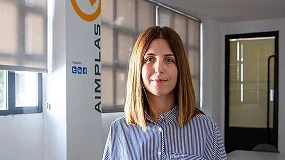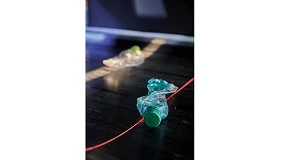Interview with Ramón Gil de Luigi, CEO of PlasticsEurope Ibérica
May 31, 2011
The contribution of plastics to sustainable development. This was the main aspect to treat PolyTalk, annual meeting organised by PlasticsEurope Association and other entities, which this year was held between 25 and may 27 in Paris. Ramón Gil de Luigi, director-general of the Association of producers of polymers PlasticsEurope Iberian opted for sustainability as a competitive advantage and do not hesitate to describe as "a green material" plastic.
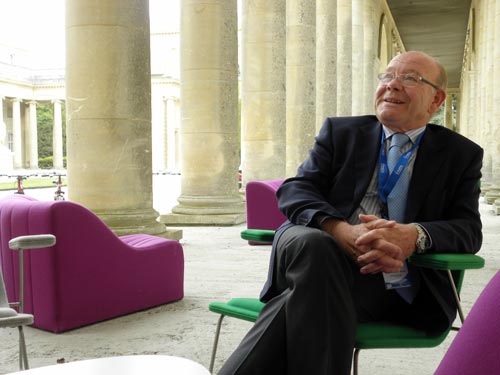
The skeleton of these days here in Paris is sustainability. One of the conclusions is that the 'green' is now a key factor in the economy. What is the role of the plastic in this context?
Plastic is a material that works directly with sustainability. Behind this industry there is a bet on development and innovation with the green label.
On the day it has been raised whether sustainability for companies is a real concern for the environment, a desire to connect with consumers and their sensitivities or if, on the other hand, it's a marketing tool to sell. What is your opinion on this?
Today a company that wants to develop and grow in the market could not stand with its back to the needs of this, you can not ignore them.
And the market calls for 'green'...
Yes, the customer is sensitised with the environment and industrial development that includes not what the market demands is now unthinkable.
And what he believed to be the image of the material in the public opinion?
The Association has recently conducted a survey by various European countries showing that more than 50 per cent believed that the plastic provides innovative solutions and is a virtually irreplaceable material in plenty of applications that are part of our lives in our day to day.
And what he thinks the consumer on the management of plastic waste, according to this survey?
This is one of the main concerns for the respondents. In this sense, the sector must provide, develop and providing items and channels that allow perfect recycling of raw. The consumer must know what pollutes the plastic is the evil use that we make of it. For example, a plastic bag not walks alone around the sidewalks of our streets or among the trees of our forests; are we, the users, who launched her where does not touch.
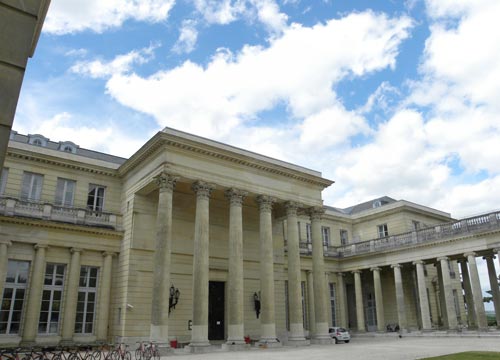
After the controversy raised precisely the use of plastic bags. What do you think is the best alternative, the best solution, both for the environment and for the consumer and the sector of raw materials and transformers of plastic?
The Ministry of environment of the United Kingdom made public this year a study comparing the different alternatives that exist today for the transport of buying in a supermarket. According to this, the plastic bag is the best choice. The consumer must be sustainable, i.e. reducing consumption, do not eat too much or an unnecessarily, and must take into account that a conventional plastic bag can and should reuse.
And what happens once reached the stock market at the end of its useful life?
It must undergo a quality recycling. Properly separate the different types of plastic - I would add, in this regard, that today technology allows it to do - and with this recycling as available again from raw material to manufacture finished products.
And all types of plastic can be recycled?
Yes, but when have recycled you a certain number of times, depending on the type of plastic that is involved, there comes a point that has not already can be recycled.
What can be done then?
Use as energy.
How?
Energy recovery. Burned, so that with its combustion energy we get. Throughout this process, we have managed to eliminate waste, recycle the material and, in the end, recover all the energy we have invested in producing the material. More sustainable is not.
The circle is closed...
Yes. Sector should provide all the necessary channels for that to happen, but everyone has to work together, and the consumer must also act appropriately.
How much plastic is recycled in Spain?
Slightly less than half.
Insufficient.
Yes, 100% is recycled in other European countries such as Denmark. We have still a long way to go, and in it, Governments have a great role to play, promoting recycling, to educate the population in this regard.
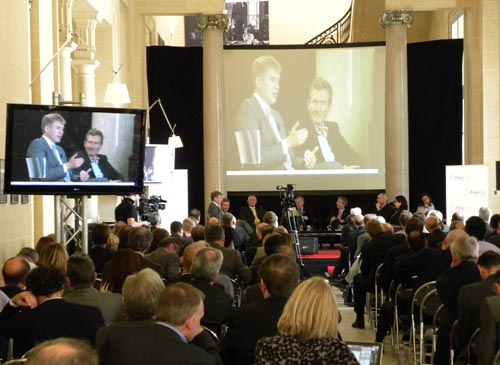
And what happens in our country with the rest of the plastic, which is not recycled? Do not just becoming energy as pointed above?
In Spain we hide it in a landfill. This is a disastrous solution in my opinion. If I remember correctly, since 1992 only has been launched a plant of energy recovery of waste. If we do not move in this sense, the circle cannot be closed.
A life dedicated to the plastic
Ramón Gil de Luigi began his professional career at BASF. During his last period in the multinational chemistry he served as Vice President and commercial director of BASF in the Iberian Peninsula. After dealing with numerous functions in different associations in the sector, Gil de Luigi is the director-general of the Iberian PlasticsEurope Association, which has centres in Brussels, Frankfurt, London, Milan and Paris from June 1, 2010.
The path of the sector
Where is the industry heading?
Currently, 20% of a car is plastic. And if the future of the automotive industry through the electric car, the proportion will soar, as one of the problems is the duration of the batteries, which are directly dependent on the weight of the vehicle. In the not distant future, 80% of the materials of the cars will be plastic.
Is the plastic within 50 years the material that we know today?
At all. It is investing much to advance the development of new plastic raw materials, new polymers and mixtures to meet new needs. Anyway, I think that some formulas are now for certain applications will be always.
What can you tell us of nanomaterials?
They can do much by the chemist and the plastic sector in general, but lack a little experience in research concerning applications. There was also the creation of a regulation governing it. Without clear rules of play, the industry does not know well to where moving.
Is there a future for plastics?
Without a doubt. Plastic is the material of the 22ND century.
"PolyTalk is the perfect platform to discuss sustainable development and the influence they can have the plastics and other related sectors, as well as to devise new proposals together with the entire value chain." "Only in collaboration with our customers and other related industries, the plastics industry may be prepared to respond to the needs of the society, present and future", says Wilfried Haensel, executive director of PlasticsEurope. The initiative, with the assistance of about 230 people, was one of the satellite events of Green Week, which this year celebrated its 11th Edition under the slogan ' Using less, living better' (living better using less). The initiative, focused on European environmental policy, took place in Brussels and across Europe, through different satellite events as PolyTalk, from 24 to 27 May.
PolyTalk days, inaugurated by the European Environment Commissioner, Janez Potocnik through videoconference, held between 25 and 27 may in the Châteauform Rochefort, in the town of Rochefort in Yvelines, 50 kilometres south of Paris, and included the participation of John Elkington, world authority on corporate social responsibility and sustainable development, to whom the CSR International 2009 survey ranked fourth, behind Al Gore, Barack Obama and Anita Roddick. The event also counted with the presence of Julio García bourgeois, director of the unit of management of waste of the Directorate General of environment of the European Commission; and Bruno Garnier, director of Packaging and sustainable development of Carrefour, among others related to the sector of the plastics and the environment. In addition, the initiative hosted the first global meeting of the implementation of the 'Joint Declaration on the marine garbage'.


